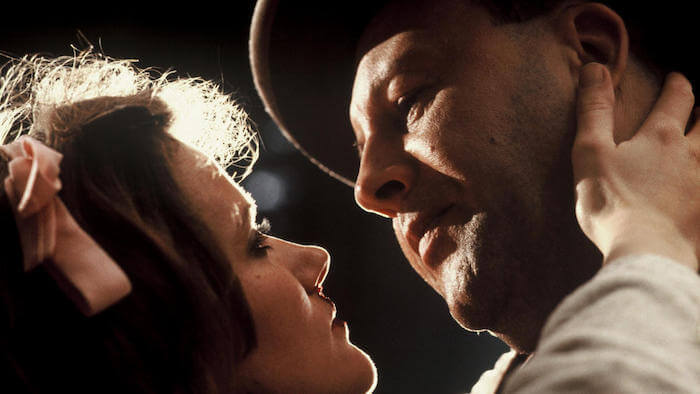The Best Old Movies on a Big Screen This Week: NYC Repertory Cinema Picks, September 7-13

Berlin Alexanderplatz (1980)
Directed by Rainer Werner Fassbinder
Fassbinder did so much in so short a time that fully keeping track of the strands of his stylistic evolution and how they intersect with his obsessions requires something like a serial killer’s obsessive dedication. RW was one of the few filmmakers who made sure that quality and quantity went hand in hand, not only in the sheer expanse of his output, but that when he decided to make the longest film in his career, a multi-part miniseries for TV, it was going to be his magnum opus. He may have made better films, but Berlin Alexanderplatz feels like the sum total of Fassbinder’s chief obsession: his own broken body and hungry but damaged mind, one that chased excesses it couldn’t control. The weight of life’s responsibility falls heavily around the shoulders of goodnatured fool Franz Biberkopf (a man half Gordon Comstock, half Lennie Small) trying simply to exist, and if so permitted, find happiness where none seems willing to find him. Fassbinder’s images have his late period luster, a tintype’s sheen, in order to overly romanticize the plight of the working-class doomed. All Franz wants is the feeling of reaching the perfect state of drunkenness, and to have someone with which to share that particular euphoria. Germany has other plans. Fassbinder and his character believed they could fool life’s miserable design, and they all suffer mightily for their hubris, no matter how innocent they remain. Berlin Alexanderplatz, like the structure that gives this intimate, earnest tragedy its name, is mighty, towering, but its pleasures and pains are always easily understood. This unmissable gentle giant gave us Fassbinder’s strengths and weaknesses in the most beautiful, heart-rending form they ever took. Scout Tafoya (Parts 1-13 and epilogue September 13-18 at MoMA, in a revival of the 2006 35mm restoration)
You might also like 



















